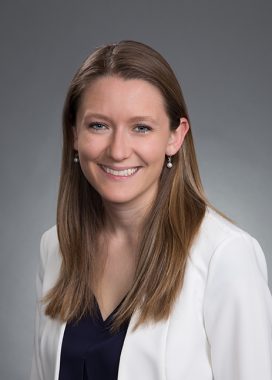Home / Julie Powers
Julie Powers
 |
Julie PowersSchool: Graduate School of Engineering Department: Civil and Environmental Engineering Research Interests: Water Science & Systems, Climate Change, Public Health, Environmental Engineering |
TIE Affiliation
Environmental Research Fellowship
Research
Water treatment could improve child cognitive development by interrupting pathogen transmission. Enteric infections may contribute to malnutrition through intestinal inflammation and reduced nutrient absorption, which could in turn impair cognitive development. The WASH Benefits Kenya trial was a randomized controlled trial of water treatment (chlorine dispensers) and other interventions which enrolled pregnant women and followed their children for their first 2 years of life. Since the trial ended, an NGO has continued to refill most chlorine dispensers. Julie’s research will examine the effect of water treatment on child development by conducting the International Development and Early Learning Assessment with children who participated in WASH Benefits Kenya and are currently 4-7 years old. She will compare literacy and numeracy scores between water treatment and control areas, and examine whether the effect of water treatment is mediated through a reduction in Ascaris lumbricoides infections. This research could shed on the long-term impacts of water treatment on child development.
Experience
Julie is a PhD candidate at the Graduate School of Engineering in the Department of Civil and Environmental Engineering. She expects to complete her studies in May 2022. Julie earned her B.A. in Environmental Engineering from SUNY University at Buffalo. Prior to coming to Tufts, Julie gained experience working as an engineering intern at both New York State Office of Parks, Recreation, and Historic Preservation and at Covanta Energy Corporation. At NYS Parks, she worked on sewer discharge monitoring and reporting storm water erosion conditions. At Covanta, Julie worked in environmental regulatory compliance. She also had fun working part-time as a group facilitator at Orenda Springs, an outdoor adventure center, where she led groups through team building exercises and a high/low ropes course. After graduating and before beginning her PhD, Julie worked during the summer as an on-call environmental engineer at Ecology and Environment, Inc, an environmental remediation consulting firm. At Ecology and Environment, she worked on engineering specification quality control and remedial action oversight. At Tufts, Julie is a fellow in the Graduate Engineering Teaching Training Program. Through this fellowship, she will have the opportunity to co-teach a course.
Current Studies and Future Goals
When asked what she found most meaningful about her field of study, Julie responded with the following: “Environmental quality impacts human health and well-being—this is the premise for my chosen field, Environmental Health. As a PhD student in Environmental Health, I get to shape my work around problems that are important and understudied. My focus area is environmental transmission of diarrheal diseases. The long-term effects of diarrheal disease (such as child development), are not well understood, and climate change is projected to worsen the impacts of diarrheal disease. Understanding these impacts and evaluating potential mitigation strategies can motivate action that saves and improves lives. Through my TIE work, I will examine the effects of water treatment (a potential mitigation strategy) on child development.”
When asked what interested her in becoming a TIE Fellow, Julie responded with the following: “I was drawn to the interdisciplinary nature of the TIE program. My research requires expertise from several disciplines including environmental engineering, child development, public health, and GIS. I believe that bringing people together who have different backgrounds and skill sets can generate new and meaningful ways to tackle complex problems. I am grateful to TIE for creating a space and support network to do this. I am excited to work with faculty from multiple disciplines and to connect with other students engaging in interdisciplinary environmental research.”
After Tufts, Julie plans to apply to the CDC’s Epidemic Intelligence Service and post-doctoral researcher positions in environmental health. She hopes to pursue a position in academia or government, working at the intersections between environment, health, and policy.
Fun Facts!
When not doing school work, Julie enjoys running and hiking with her dog, reading, spending time with family and friends, and traveling/exploring new places!
Favorite place you've visited: Great Barrier Reef, Australia
Favorite course taken at Tufts: Advanced GIS